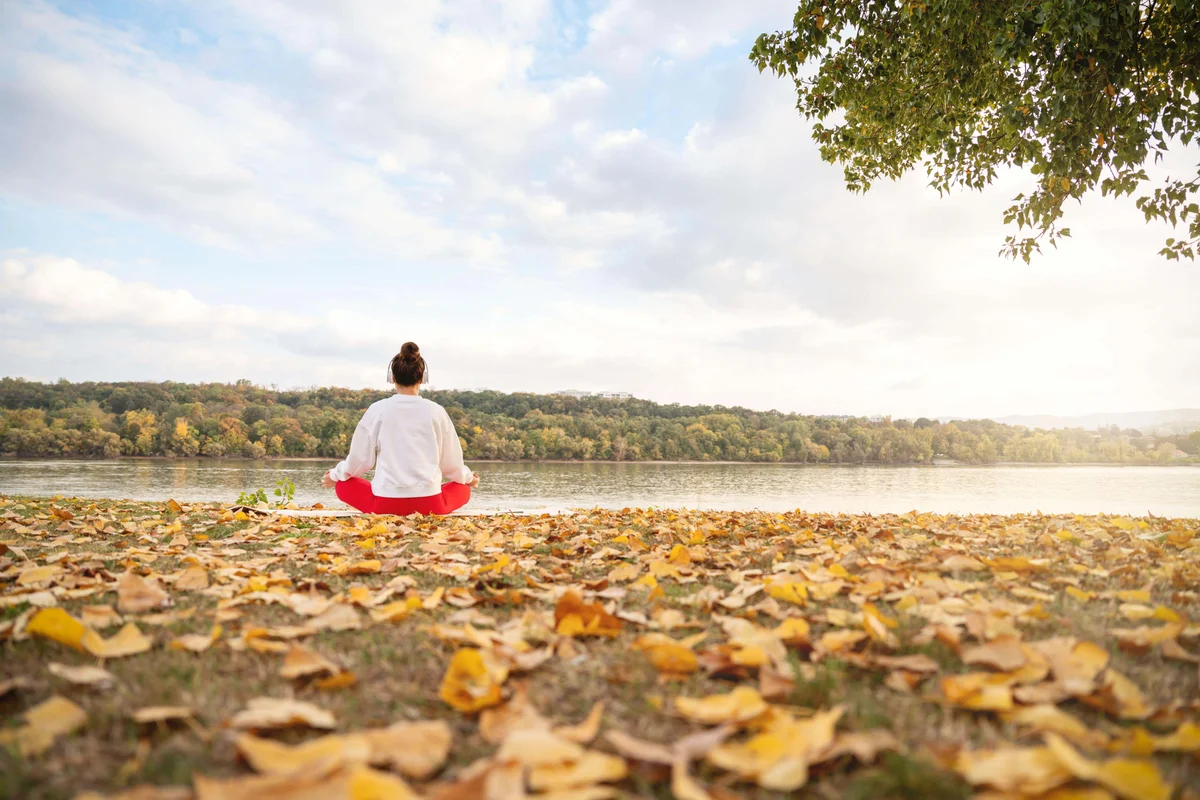By Ella Walker
Copyright independent

As the leaves turn, pumpkins pop up everywhere and the air temperature increasingly leaves the tip of your nose numb, moods can shift as much as the season. And while some adore whacking the heating on and cosying up when it gets dark at 3pm, for others, this time of year is one to dread, not embrace.
According to the Royal College of Psychiatrists, around 3% of UK adults have “significant winter depression”, known as seasonal affective disorder (SAD), and more generally, there are pressures at this time of year that mean “people can feel less happy,” says GP Rachel Ward – even if you don’t have a mental health diagnosis.
The basics matter
Unfortunately, we can’t fast-forward to spring, but little changes can help bolster wellbeing and mental health. “There’s so much talk about mental health, and diagnoses are really important, but what is under-talked about is the importance of the simple things,” says Ward. “If somebody is getting outside, sleeping well, eating well, doing some exercise, moderating their alcohol and getting social interaction with other people, whether that’s in the workplace, their personal life, or doing some volunteering, those things all have such a key role in keeping your mental health in a good place.
“Often when we [GPs] speak to people, some of those things are really not being looked after. And you cannot underestimate how important they are.” So get to bed on time, take your vitamin D tablets and spend time with people you love.
Don’t hide indoors
It might seem like there’s barely a scrap of daylight to be had, crucially, “try to get outside, in the sunlight, as much as possible,” says Ward. “Yes, you need to wrap up warm, especially if you are a bit frail, or if you have any lung or heart disease, but you absolutely should still be getting time outside.”
For those who have SAD and are really struggling, “you can use light therapy” says Ward. There is some evidence to suggest that light boxes – which simulate daylight – can help boost mood. However, “some people get SAD to an extent that they do need to have things like cognitive behavioural therapy (CBT) and antidepressants, as you would with other mood disorders.” If that is the case, speak to your GP.
Watch your energy levels
It can be tempting to take to your bed and hibernate until March, but becoming sloth-like won’t help your endorphin or energy levels. “You can get into a real negative cycle with energy. And I really believe, the less you do, the less energy you have,” warns Ward. “You need to get over that initial hump and accept that actually, despite it being cold outside, it is still very important to spend time outside and doing exercise.”
“If you feel like you are doing things that really should be boosting your energy levels, and they’re not doing anything, if you’re sleeping an abnormal amount, or you’re feeling physically like you’re struggling to do things, or you’re feeling unusually short of breath, this could be a sign that there’s something more significant underneath,” says Ward. “Whether that might be anaemia [caused by things like iron deficiency, ulcers, fibroids], or it can be the sign of some underlying cancers [from breast to blood].” Speak to your GP.
Don’t completely sink into comfort food
Roast season is upon us, sticky toffee pudding is on every menu and hearty meals rarely win out over salads when it’s chilly out, but avoid letting your nutrition slide. “We tend to go towards more stodgy, carb-heavy food,” says Ward. “Making sure we’re still having lots of vegetables, fruit, colours and variety in our food – you can still eat seasonally – is going to keep our vitamins and mineral levels boosted.”
Keep an eye on booze intake
As we careen towards the festive party season, alcohol can become a staple. “Alcohol is linked to poor sleep, but also it can be a depressant. If you are drinking more frequently, it can have a more persistent effect on your mood,” says Ward.
She recommends visiting the NHS website for drinking guidelines and support. “You shouldn’t drink more than 14 units a week (around six medium glasses of wine, or six pints of 4 percent beer), and you should be spacing that out,” she says. “Be aware of binge drinking and if you think you have got a problem, don’t immediately go from drinking lots to stopping, because you can run into problems. Look for local addiction services and NHS support about how to control or stop.” Alcoholics Anonymous, for instance, runs meetings across the UK.
Try not to be overwhelmed by family stress
Between Halloween, Christmas and New Year, family gatherings ramp up, and can bring with them gripes, crises and unresolved tensions, which can all contribute to a fractious state of mind. “Families are so complex, and Christmas can become an incredibly stressful time for people because of family dynamics or family not being there. We see a lot of people around that time with family issues, and people splitting up,” says Ward. “There are a lot of organisations out there to support you. Samaritans, if you’re feeling really low, or Mind, is a fantastic organisation.” There’s also Relate, and local services too, depending where you live.
When to seek help
Low mood can creep up on you, and it can be hard to tell if it’s just a blip or something to be more concerned about. “If you have a persistent low mood, so if you’re feeling low in mood every day for more than two weeks, or if you’re not enjoying anything, or if you’re really feeling desperate, that is a sign that this could be something more significant,” says Ward. “We all have ups and downs in our mood, but if you are feeling really down, don’t overthink it. Find somebody to talk to.”
You can start by talking to your partner, a family member or friend, contact your GP – you can self-refer on the NHS for mental health support – or speak to a therapist. If you’re worried you might hurt yourself, call 999.



